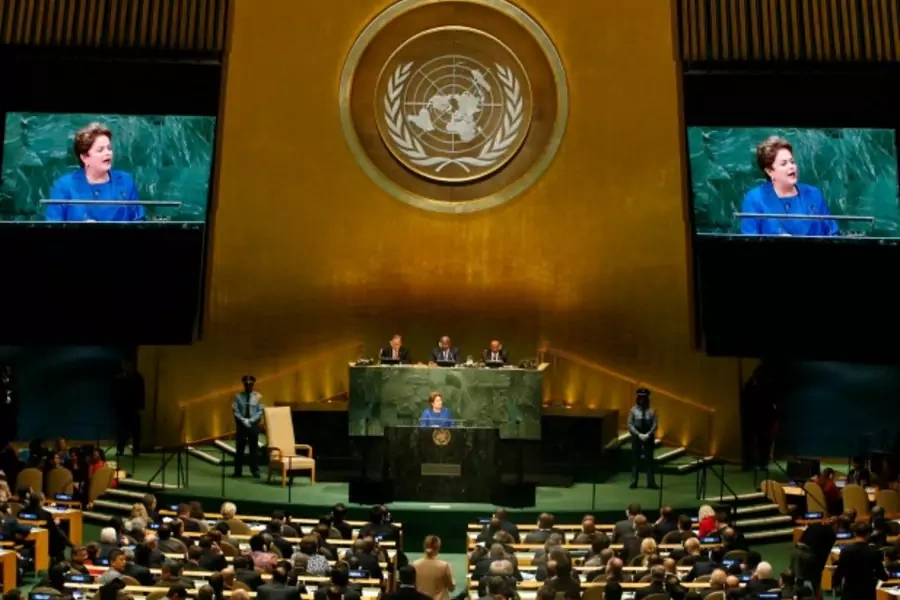UN Committee Adopts Resolution on Right to Privacy in the Digital Age

More on:
Alex Grigsby is the assistant director for the Digital and Cyberspace Policy program at the Council on Foreign Relations.
On November 25, 2014, the third committee of the UN General Assembly adopted a resolution that calls on states to "respect and protect the right to privacy" in the digital age. The resolution is the follow-up to a very similar motion that Germany and Brazil sponsored last year in response to the Snowden revelations. Germany and Brazil led the adoption of this year’s resolution and secured over thirty-five cosponsors including Cuba and Russia, countries not necessarily known as beacons of online privacy.
While this year’s text is longer than last year’s, the substance of the resolution has not dramatically changed. The most notable additions include a reference to metadata having the potential to reveal personal information and that the surveillance of digital communications "must be conducted on the basis of a legal framework." There is also a reference to the NetMundial conference held in April 2014 in São Paulo, Brazil. While NetMundial is generally seen as a success, the resolution only notes that the conference took place instead of using more approving language that Brazil probably would have wanted. It is likely that the sponsors didn’t want to needlessly antagonize Russia, which is one of the few countries that protested the NetMundial outcome and is one of Brazil’s BRICS partners.
The adopted text was likely much more palatable to the Five Eyes—an intelligence grouping comprising Australia, Canada, New Zealand, the United Kingdom and the United States—than the first draft of the resolution. The first draft contained references to an Office of the UN High Commissioner for Human Rights report on surveillance practices that argued that surveillance needed to confirm with principles of proportionality, legitimacy, and necessity—principles that are not contained in the International Covenant on Civil and Political Rights (ICCPR) but that a coalition of advocacy groups are promoting. Like last year, the first draft also implied that states’ human rights obligations extend beyond their borders and jurisdiction, a position which is hotly contested. Both of these references probably constituted redlines for the Five Eyes that were removed or amended into softer language to achieve consensus on the final text. Brazil, according to an explanation of its position, did not seem pleased with some of the concessions though it welcomed the resolution’s passage at the committee stage.
The penultimate paragraph of the adopted text hints at the establishment of a "special procedure" to identify and clarify "principles, standards, and best practices regarding the promotion and protection of the right to privacy." The modalities of this procedure, which could include a new UN special rapporteur on surveillance per Brazil’s request, could continue to divide the Five Eyes from Germany, Brazil, and the resolution’s supporters given that both sides disagree on the scope of applicability of the ICCPR and the necessity of new UN rapporteur.
The full UN General Assembly will likely adopt the resolution within the next few weeks.
More on:
 Online Store
Online Store